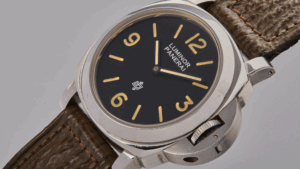
Panerai’s Digital Passport: A Leap Forward in Authenticating Luxury Watches Through NFTs
Italian luxury watchmaker Panerai is taking a decisive step to disrupt the traditional luxury watch industry by introducing a digital passport for every watch sold, starting October 3. The digital passport leverages Non-Fungible Token (NFT) technology to offer a record of authenticity, detailed information about the timepiece, and a secure transferability feature.
How Panerai’s Digital Passport Works
Panerai is offering this digital passport in collaboration with Arianee, a Web3 solutions provider. The NFT-based document not only contains information about the watch’s technical specifications but also tracks its journey throughout its lifespan. This robust feature adds another layer of assurance for secondary market transactions by allowing subsequent owners to verify the watch’s provenance with ease.
The initiative will be showcased at the upcoming Watches and Wonders fair in Shanghai, offering the global watch community an insight into Panerai’s groundbreaking move.
The Legacy of Panerai Watches
Founded in Florence in 1860, Panerai has a storied history of producing marine chronometers and diving watches primarily for the Italian Navy. Known for their unique cushion-shaped cases and luminescent inserts, Panerai watches have become a symbol of luxury, with prices varying from approximately $5,000 to more than $100,000.
The Technological Nuances of NFTs
NFTs, or Non-Fungible Tokens, are unique cryptographic tokens that exist on a blockchain and can represent ownership of a specific item or piece of content. These digital assets contain vital information about the item’s origin and ownership, stored securely in an immutable distributed ledger. Essentially, they function as digital stamps of authenticity that can be easily transferred from one owner to another, ensuring transparency and eliminating the risk of counterfeiting.
Tackling Counterfeiting: A Global Challenge
Counterfeiting in the luxury watch sector is a global concern, with an estimated market value exceeding a staggering $400 billion. Approximately 40 million fake watches are sold worldwide annually, causing enormous financial losses to the genuine watchmaking industry and diluting brand equity.
Conclusion: Embracing the Real-World Applications of NFTs
Panerai’s initiative stands as a real-world example of how blockchain and NFT technology can be harnessed to solve longstanding issues of authenticity and counterfeiting in the luxury market. By using a blockchain-based digital passport, Panerai positions itself as a pioneer in leveraging emerging technologies to offer more security and transparency to both first-time buyers and seasoned collectors.
As more industries look for innovative ways to tackle the global counterfeit market, Panerai’s NFT-based authentication is a compelling proof of concept. It signifies not just a trend but perhaps the future of how luxury items will be bought, sold, and verified.











